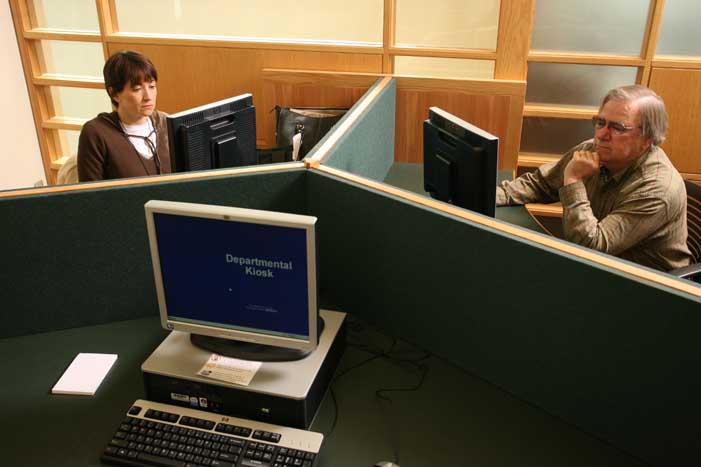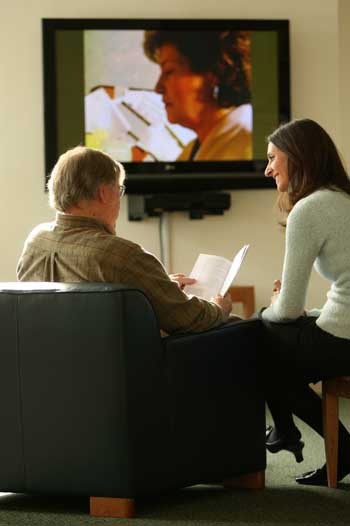 |
Archive for the ‘Chic Chat’ Category
Thursday, January 29th, 2009
The NN/LM-New England Region’s online learning program on Health Information Outreach and Community Engagement: Lessons Learned from the Experts is full. We are pleased with the overwhelming enthusiasm for the program. Due to a large waiting list, the program will be recorded for later viewing. The NER plans to send the link for the recording directly to participants on the waiting list as well as post it on our Connecting with the NER site. Unfortunately, MLA CE units will not be awarded for viewing the recording of the program.
Posted in Announcements, Chic Chat, From the Associate Director, Public Health Review | Comments Off
Tuesday, January 27th, 2009
The Maternal and Child Health Library at Georgetown University in collaboration with the National Maternal and Child Oral Health Resource Center (OHRC) released a new edition of the knowledge path about oral health for infants, children, adolescents, and pregnant women. Presented in time for Children’s Dental Health Month in February, this electronic guide points to resources that analyze data, describe effective programs, and report on policy and research aimed at improving access to and the quality of oral health care. The knowledge path contains sections with resources for professionals, resources for consumers, and resources on specific aspects of oral health. Topics include child care and Head Start, dental sealants, early childhood caries, fluoride varnish, K-12 education, pregnancy, school-based care, school evaluation mandates, and special health care needs. The knowledge path is available at http://www.mchlibrary.info/KnowledgePaths/kp_oralhealth.html. Knowledge paths on other topics are available at
Susan Brune Lorenzo, MLS
E-mail: smblorenzo@gmail.com
Maternal and Child Health Library
National Center for Education in Maternal and Child Health at Georgetown University
Web site: http://mchlibrary.info
Posted in Announcements, Chic Chat | Comments Off
Wednesday, January 21st, 2009
Health Information Outreach and Community Engagement:
Lessons Learned from the Experts
Thursday, February 12, 2009 / 2 – 3:30 PM
Engaging your community with health information outreach projects is rewarding, meaningful work. Come learn from the experiences of experts in health information outreach and community engagement. Each speaker has led a successful health information outreach subcontract from the National Network of Libraries of Medicine/ New England Region. The program is intended for anyone interested in pursuing funding or interested in learning more about how to engage the local community in effective health information outreach.
*Earn 1.5 Medical Library Association CE units
The Experts:
Beth Schneider, Massachusetts General Hospital, Boston, MA
Project: Access to Resources for Community Health (ARCH) / Head Start CAPIC Collaboration
Marianne Burke, University of Vermont, Burlington, VT
Project: Connecting Patients, Providers, and the Community with Quality Health Information Outreach
Anne Conner, Littleton Regional Hospital, Littleton, NH
Project: Northern New Hampshire Health Information Outreach
Participants will:
a) Learn about three successful health information outreach projects
b) Learn how to plan and implement a successful health information outreach project
c) Know about the process of applying for funding from the NN/LM
d) Be aware of the rewards and challenges of conducting a health information outreach project
e) Gain knowledge about project evaluation
Registration:
Registration is free and on a first come, first serve basis. Session will be limited to fifty participants.
To register, please contact Martha Pearson at martha.pearson@umassmed.edu.
In your email please include:
- Name
- Institution / address with zip code / phone / e-mail
- Name of the program (Health Information Outreach and Community Engagement: Lessons Learned from the Experts).
Details of how to access the teleconference and Adobe Connect session will be forwarded at registration.
Posted in Announcements, Chic Chat, Connecting with the NER, Distance Education Opportunities | Comments Off
Monday, January 12th, 2009
Announcing a collaborative space for Native Health Information Outreach!
Share your experiences in:
Outreach Connections: Native Health Information Wiki
This space is intended:
- for those who work with health care providers serving Native peoples (American Indians, Alaska Natives, and Native Hawaiians).
- for those who work with Native health information consumers.
- to improve health information access for Native peoples.
- to exchange information from health information promotion and training experiences.
- to complement sites already focused on health information for Native peoples.
Librarians, patient educators, and others who provide health information to Native peoples and their caregivers are encouraged to contribute your projects to the wiki. You can include outreach projects, education and training projects, resources you’ve developed, and descriptions of research you’ve done. Share information about technology you’ve used, observations you’ve made, and advice you have for others who would like to do something similar. If you are willing to share training/teaching materials or other related materials under the Creative Commons non-commercial share-alike license, please post them. All material submitted to this site is shared under the Creative Commons non-commercial share-alike license so that you can borrow and adapt the resources for your own use.
Posted in Chic Chat | Comments Off
Tuesday, December 30th, 2008
By Caroline Marshall
Horblit Health Sciences Library
Danbury Hospital, Danbury CT
When I took on the role of consumer health librarian here at the hospital two years ago, I learned pretty soon that I had to be creative in how I went about promoting consumer health information. The reason, I had little or no budget!! Here are some ideas based on what I have done and what I plan to do to promote consumer health outreach.
I started off by visiting local public libraries and offered myself and my library as a resource for questions that they did not have the resources to answer. I let them know that they could refer patrons to me either by phone or in person. Additionally when I do projects such as the Sun Safety competition I do each year I send brochures, handouts and posters to the libraries so that they can display them for their patrons. I am working closely with a public library in NY State that contacted us regarding setting up a consumer health collection. In addition to providing collection advice I have put them in touch with our Community Relations department to help them set up health talks at the library with our physicians.
Another area to contact is the local high schools. For example, one of the nearby high schools has a multinational population. I offered to provide foreign language health resources and provided them with web links for their website. Additionally I arranged for the school’s Careers Club to visit and learn about several departments in the hospital. They were all very impressed by the NICU (Neonatal Intensive Care Unit).
Don’t forget your local Community Organizations! I got in touch with the local Adult Education ESL coordinator and she very kindly faxed me a list of community organizations. I have visited the Senior Center and done a short presentation on MedlinePlus The list of organizations I visited is long, including a MOM’s Group, The Hispanic Center, and Women’s Center etc. Support Groups are another area for outreach. For example, in my area there is a Grandparents Support Group for grandparents raising their grandchildren. I will offer to do a presentation on MedlinePlus and NIH Senior Health. There is also a Low Vision Support group I was planning on visiting, to introduce them to audio health materials such as the MedlinePlus Tutorials and the Healthy Roads Media site that includes audio formats for a wide range of health topics. Additionally there is a Diabetes and Cancer support group. Your local Town Hall should be able to give you a list of support groups in your area.
Many communities have a Visiting Nurse Association and a Parish Nurse. Your local church should be able to put you in touch with your Parish Nurse and you could offer to do something at their next area meeting. They will probably be involved in local health fairs so you could offer to provide consumer health information on popular health topics. Always try to include some easy to read health information and handouts in large print. Find out if there is a particular minority group or groups in that area and be sure to include some information in that particular language.
Check out your local community college or university. They may have a health science course; my local university has a Health Promotion and Exercise Science Department which can lead to preparation as a community health educator or a school health educator. The courses cover consumer health, mental health, and CAM just to name a few. I agreed to do a presentation to a class in January on Health Literacy, showing the students resources for writing and developing easy to read health materials. MedlinePlus has a good section on Health Literacy and the CDC has a fairly comprehensive guide developing materials called Simply Put.
Work with a school or a class in school on a project. For example, if you support a project on Sun Safety you can get great posters from the American College of Dermatology which actually show the sun damage you cannot see with the naked eye. If you choose a class with younger children you could do an art project on ways to stay safe in the sun. The children in the lower grades may be more receptive to that type of project rather than the higher grades. You could also include a quiz and a word search and if you know any dermatologists or plastic surgeons you might be able to get some free samples of sun cream to hand out. The EPA has a SUNWISE Program for schools and communities with resources for educators http://www.epa.gov/sunwise/ this might be a good thing to introduce to local schools.
Another project which I want to do is work with a public library or an Adult Education Center to offer a class on how to find health information on the web.
I have made some post cards with my library’s name and that we can provide health information free of charge to be displayed at local health fairs. They say Be Informed; Horblit Health Sciences Library at Danbury Hospital provides health information free of charge to the public. Call or visit us etc. I make sure the Community Relations Department has a good stock and leave some in the lobby of the hospital. I have also given some to a local doctor’s office as a pilot study to see if their patients were interested in following up their visits with further information.
If you do have a Community Relations Department at your hospital it is a good idea to get to know them. I provide information for the health fairs they attend to promote the hospital. In addition they act as a Speaker’s Bureau providing physicians to speak at different health events and of course they like to have handouts. They have also invited me to several community events and I have managed to do some consumer outreach that way.
I always do my research first, checking out the web pages of the organizations I plan to visit, seeing where I can fit in. I have also set up a spreadsheet; I enter the month and who I met, phone number etc, what I gave them and whether it was an introductory meeting or a follow up. This way I can keep track of what I sent and who everyone is. It is also a good way of keeping stats !
Consumer Health Outreach is an ongoing project, you have to get yourself out there again and again. I have only had one, touch wood, bad experience when a school library I approached wouldn’t even talk to me. But, in general I have had good experiences and met some great people. One thing I particularly like to do is to invite the libraries I have worked with to come and visit my library so they can see where they are referring people. It also helps me to network for future collaborations. As I said it is an on going project but you just have to keep at it and enjoy yourself along the way.
Posted in Chic Chat | Comments Off
Tuesday, October 28th, 2008

Learn about the history and future directions of MedlinePlus Go Local in Naomi Miller’s latest article, The NLM Hosted Go Local System: An Opportunity for Medical Libraries. Most importantly, learn how your library can benefit by participating in Go Local.
Posted in Announcements, Chic Chat | Comments Off
Friday, October 3rd, 2008
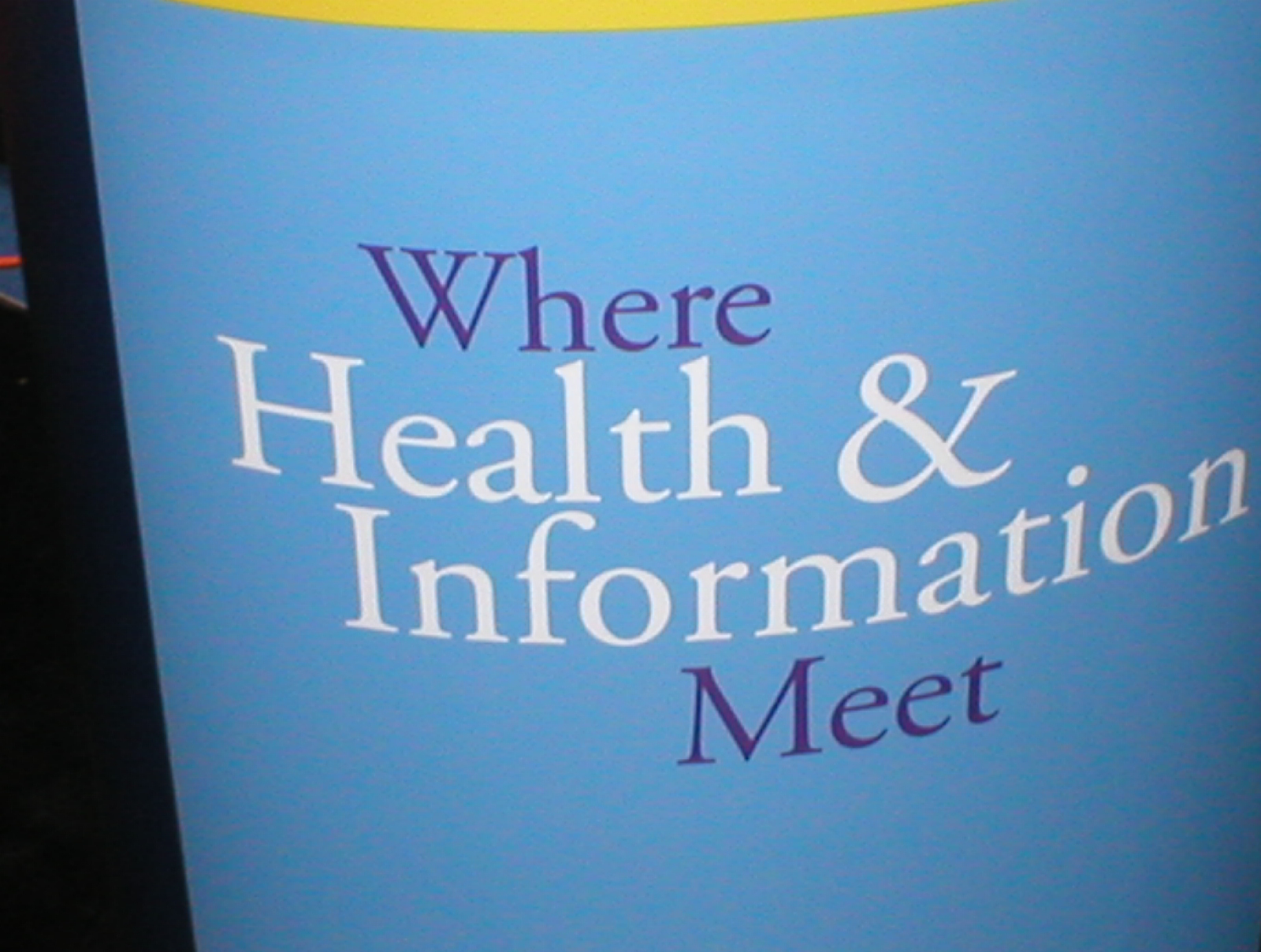
Your local NNLM coordinators spent the past week at exhibiting at the ASTRO (American Society for Therapeutic Radiology and Oncology) at the Boston Convention and Exhibition Center. Our participation at national exhibits help us to get the word out to health professionals about the high quality resources available through the National Library of Medicine. Most conference attendees were familiar with PubMed. Our objective is to educate about advanced search features. Though, the My NCBI feature came out in 2005. There is still a large majority of health professionals who are unaware of this outstanding feature. My experience is that when care providers learn about the “current awareness” feature (that they can save searches to have them emailed on a regular update)…there is much excitement. This is a time saving and educational tool, which is essential for keeping up to date with new research.
Keep your providers up to date on the “hot topics” most relevant to them. Help them to register for a MyNCBI account, customize searches with them and have them emailed to them. My observation is that most providers are just not using RSS yet. We need to be where are users are at…
Here is our own Lauri Fennell, Outreach and Education Coordinator, demonstrating MyNCBI.
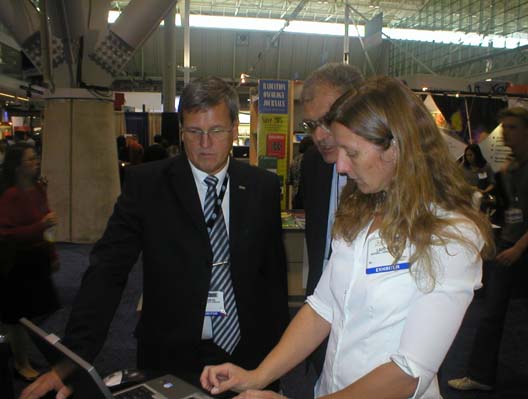
Posted in Announcements, Chic Chat | Comments Off
Friday, October 3rd, 2008
On Tuesday, September 23rd, I had the honor of providing a training session to the health staff at the Wampanoag Tribe in Mashpee, MA. I had the opportunity to learn about the tribe’s health information needs and discuss opportunities for partnering with the tribe to educate about online health information. The Tribal Health Center is very eager to incorporate NLM consumer health resource training into their health information outreach.
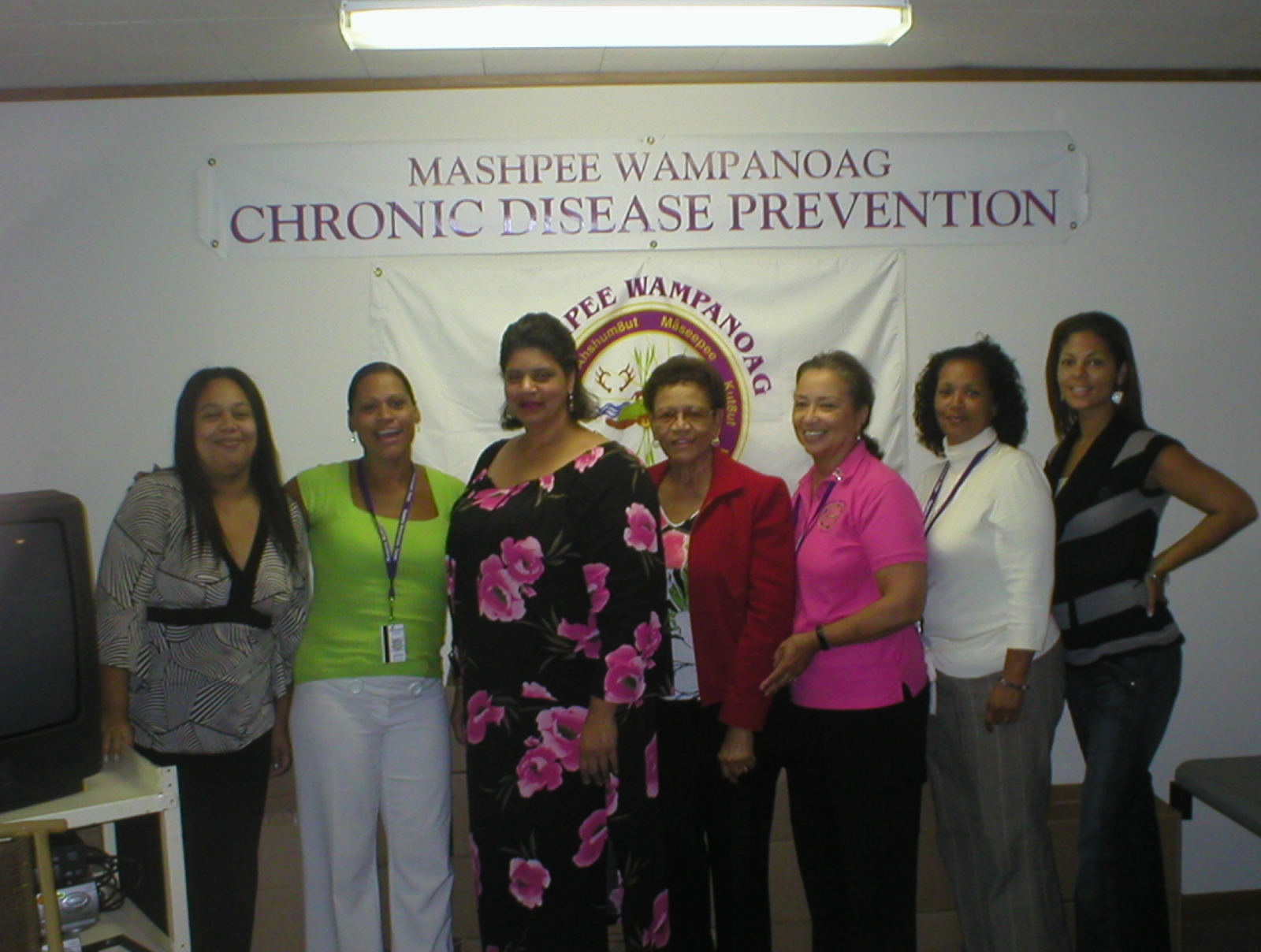
Posted in Announcements, Chic Chat | Comments Off
Friday, September 19th, 2008
Contributed by Cindy Stewart
The Heath Education Center at Dartmouth-Hitchcock Medical Center
In October 2007 the Health Education Center (HEC) at the Dartmouth-Hitchcock Medical Center (DHMC) in Lebanon, NH, was officially opened for business. The HEC serves DHMC patients, their family members, and the community at large.
The HEC is a collaborative effort among several departments: the Dartmouth College Biomedical Libraries, the Dartmouth College Center for Continuing Education in the Health Sciences, and the hospital’s Center for Shared Decision Making. The Center for Shared Decision Making helps individuals with difficult healthcare decisions. Shared Decision Making staff in the HEC offer helpful videos from their Decision Aid collection.
The HEC is focused on connecting the dots between information requirements, the need for emotional and educational support, and
on-site counseling for medical decision making. Biomedical Libraries staff, a health
educator, and Center for Shared Decision Making staff are available to assist users. A team of trained volunteers from the hospital’s Volunteer Services department also helps to make the HEC a friendly and welcoming environment.
Computers and Internet access are available 24/7 for individuals to check email, search the web for health information, and to work on a health status questionnaire. The health status questionnaire is required of many of the patients at DHMC. If they do not have a computer or Internet access at home, or if they are not comfortable using a computer, they can work with a HEC staff member or volunteer on their questionnaire. There is a quiet reading room, equipment for viewing video based decision aids and other health education material.
There is also a classroom for use by support groups and other health-related programs (including tobacco cessation, advance directives, and finding health information).
For more information about the Health Education Center, visit http://www.dhmc.org/goto/hec or contact Cindy Stewart, Associate Director, Dartmouth College Biomedical Libraries.
Posted in Chic Chat | Comments Off
Wednesday, March 26th, 2008
Submitted by Michelle Eberle

Stay up to date professionally without leaving your desk! The National Network of Libraries of Medicine/ New England Region brings you a new distance education series. This ongoing series will feature hot topics in health sciences librarianship and major updates to National Library of Medicine resources. Stay tuned for more to come! Announcements about future programs will be highlighted on the NN/LM-NER distance learning page and announced on the NAHSL-L listserv. (http://nnlm.gov/ner/training/distancelearning.html)
Recent Programs Included
“Health Literacy”
Guest speaker: Rima Rudd
Date: February 12, 2008
Time: 1-2 PM
Our first program held on February 12, 2008 featured guest speaker, Rima Rudd, Senior Lecturer on Society, Human Development, and Health at the Harvard School of Public Health with a lecture on health literacy. Dr. Rudd shared the importance of health literacy in the context of research findings, promising initiatives and roles for professional action. This was a unique opportunity for members to hear from one of the most prominent researchers in the field and to inquire with burning questions. Dr. Rudd wrote several reports that are helping to shape the agenda in health literacy research and practice. They include the health literacy chapter of the Health and Human Services book Communicating Health: Priorities and Strategies for Progress (2003) and the Educational Testing Services report, Literacy and Health in America (2004). She served on the Institute of Medicine Committee on Health Literacy, on the National Research Council Committee on Measuring Adult Literacy, on the Joint Commission Advisory Committee on Health Literacy and Patient Safety.
“Library as Commons: Improving the Library Experience”
Guest speaker: Cheryl Bryan
Date: March 19, 2008
Time: 1- 2 PM
Libraries today are expected to create havens for those seeking a quiet place to work, study or read and places for shared exploration and work groups. They also provide access to new technologies, while providing traditional print and media sources all in the same floor plan. Cheryl Bryan, Consultant with the Southeast MA Regional Library System, explored the trend towards defined activity zones, allowing the space to be reconfigured to current demands and uses, reminiscent of the simplicity of the traditional Japanese house. How are libraries successfully doing this now? How can we modify traditional services and introduce new media and formats to our communities? The successes of public libraries with library as commons was shared to provoke thoughtful discussion of this important issue for medical libraries too.
“Marketing Showcase”
Guest speaker: You!
Date: April 9, 2008
Time: 1-3:30 PM
This unique opportunity provided members with a chance to share what worked best in promoting their library and to hear effective marketing strategies from other medical librarians throughout the region. Each participant had 10 minutes to share their project, program, resource, or approach and describe how it increased the visibility and status of the library within the organization and community. Five “best in show” projects will be chosen and highlighted by the NN/LM-NER in the next NER’eastah Newsletter. The Marketing Showcase was co-facilitated by Michelle Eberle and Mark Goldstein.
We look forward to continuing to bring you meaningful educational programming in this new format.
We want your feedback! To suggest a topic and/or speaker for an upcoming Connecting with the NER program, please contact Michelle Eberle at michelle.eberle@umassmed.edu.
Posted in Chic Chat, Spring 2008 Newsletter | Comments Off
|
 |




